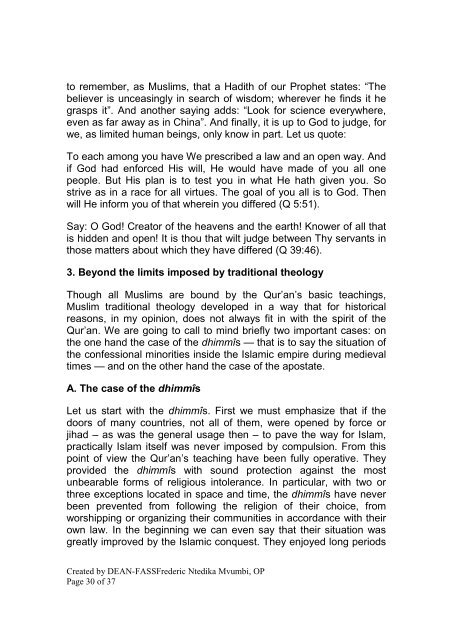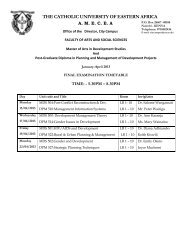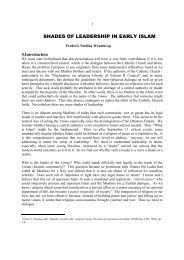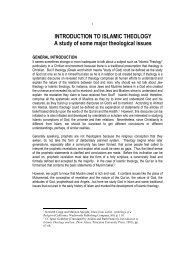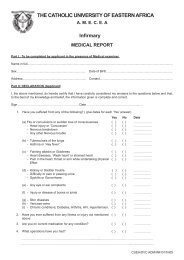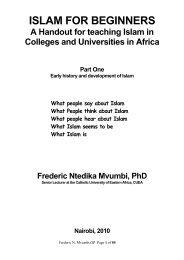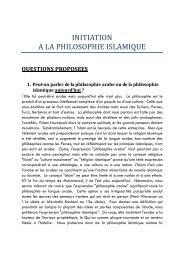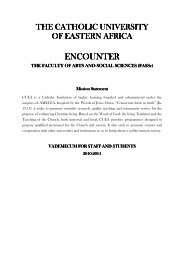PRINCIPLES FOR INTERRELIGIOUS DIALOGUE.pdf - CUEA
PRINCIPLES FOR INTERRELIGIOUS DIALOGUE.pdf - CUEA
PRINCIPLES FOR INTERRELIGIOUS DIALOGUE.pdf - CUEA
You also want an ePaper? Increase the reach of your titles
YUMPU automatically turns print PDFs into web optimized ePapers that Google loves.
to remember, as Muslims, that a Hadith of our Prophet states: “The<br />
believer is unceasingly in search of wisdom; wherever he finds it he<br />
grasps it”. And another saying adds: “Look for science everywhere,<br />
even as far away as in China”. And finally, it is up to God to judge, for<br />
we, as limited human beings, only know in part. Let us quote:<br />
To each among you have We prescribed a law and an open way. And<br />
if God had enforced His will, He would have made of you all one<br />
people. But His plan is to test you in what He hath given you. So<br />
strive as in a race for all virtues. The goal of you all is to God. Then<br />
will He inform you of that wherein you differed (Q 5:51).<br />
Say: O God! Creator of the heavens and the earth! Knower of all that<br />
is hidden and open! It is thou that wilt judge between Thy servants in<br />
those matters about which they have differed (Q 39:46).<br />
3. Beyond the limits imposed by traditional theology<br />
Though all Muslims are bound by the Qur’an’s basic teachings,<br />
Muslim traditional theology developed in a way that for historical<br />
reasons, in my opinion, does not always fit in with the spirit of the<br />
Qur’an. We are going to call to mind briefly two important cases: on<br />
the one hand the case of the dhimmîs — that is to say the situation of<br />
the confessional minorities inside the Islamic empire during medieval<br />
times — and on the other hand the case of the apostate.<br />
A. The case of the dhimmîs<br />
Let us start with the dhimmîs. First we must emphasize that if the<br />
doors of many countries, not all of them, were opened by force or<br />
jihad – as was the general usage then – to pave the way for Islam,<br />
practically Islam itself was never imposed by compulsion. From this<br />
point of view the Qur’an’s teaching have been fully operative. They<br />
provided the dhimmîs with sound protection against the most<br />
unbearable forms of religious intolerance. In particular, with two or<br />
three exceptions located in space and time, the dhimmîs have never<br />
been prevented from following the religion of their choice, from<br />
worshipping or organizing their communities in accordance with their<br />
own law. In the beginning we can even say that their situation was<br />
greatly improved by the Islamic conquest. They enjoyed long periods<br />
Created by DEAN-FASSFrederic Ntedika Mvumbi, OP<br />
Page 30 of 37


